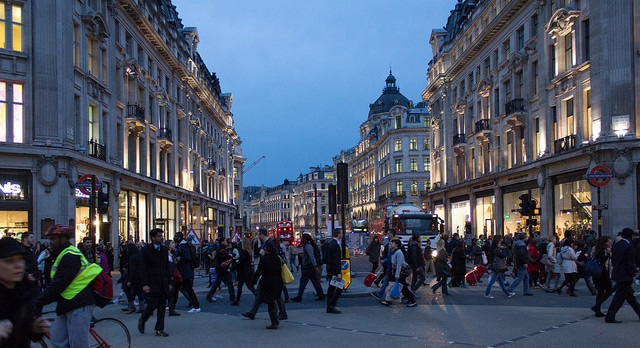Asbestos on the high street – a hidden danger to retail workers?

Photo credit: https://www.flickr.com/photos/michaelhooper
Judgment has recently been entered for Janice Allen, who has been diagnosed with mesothelioma – an aggressive asbestos-related cancer – and is aged just 53. As a teenager she worked for Marks & Spencer at their flagship Marble Arch Store, and then in Uxbridge. Before being required to disclose documents – including asbestos surveys for both stores - M&S admitted they negligently exposed Janice to airborne asbestos dust.
Sadly, this is not the first time Marks & Spencer has been in the news over asbestos. In 2011, the retailer was fined £1m over unsafe handling of asbestos during work at its Reading store. The store was extensively renovated, including during opening hours. One member of the construction team described being repeatedly overruled when he requested safety measures, and seeing a store assistant being showered with dust as she was stacking sandwiches into a chiller. The judge at the prosecution said that staff and shoppers “have a right to be anxious about whether they have breathed asbestos fibres and what the effect might be on their well being” (BBC News report, 4 February 2013).
There are increasing numbers of reports about shop workers being diagnosed with mesothelioma. Mesothelioma typically takes decades to develop and can occur even after people breathe in very low levels of exposure to asbestos. Asbestos use was very widespread from the 1950s through to the end of the 1970s.
Well-known musician Malcolm McLaren died of mesothelioma in 2010. He described the ceiling of his shop, “Sex” on the Kings Road, being ripped out to create a derelict look, and thought that was when he came into contact with asbestos.
In a recent case, Marie McGregor, who was aged just 58, failed in her claim for damages for mesothelioma after working in a concession in Lewis’s department store in Liverpool during the 1970s, while work was carried out on an escalator nearby. The decision in this case is difficult to reconcile with other case law about asbestos exposure, and it is not yet clear whether it will be subject to an appeal. (Liverpool Echo report, 8 March 2014).
Many other high street retailers have been prosecuted for breaches of asbestos regulations over the years. Helen Childs, head of Withy King’s specialist asbestos claims team, comments, "It is tragic to hear of someone so young being affected by mesothelioma. The implications of Mrs Allen’s case for other shop workers, and even members of the public, are potentially very wide-ranging. Asbestos use was very widespread, and I have pursued scores of cases for maintenance and construction workers who used asbestos during their work for well-known retail chains. Mesothelioma is a very rare illness but unfortunately shop workers and possibly even members of the public could be affected. Anyone who has been diagnosed with an asbestos related illness, or who is worried about asbestos, should seek specialist advice."
Withy King have a dedicated specialist team of lawyers who are committed to recovering maximum compensation for industrial disease claims. If you or a family member has an asbestos related illness, or have been diagnosed with an industrial disease as a result of work, you may be able to bring a claim. Contact Helen Childs by calling her on 01865 268359 or emailing [email protected].